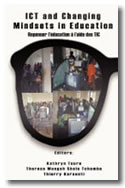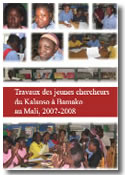Lecture Me. Really. October 27, 2015
A recent New York Times article “Lecture Me. Really.” makes the case for good and great lectures by excellent lecturers combined with active and analytical listening and synthesizing note taking by students, as well as small weekly discussion sections, as a way to teach and learn the humanities at colleges and universities [in the USA] in this day and age. But lectures alone seem to be insufficient. Students must be trained in listening and in the art of attention. Strategies need to be developed to engage learners, for example encouraging them to critique arguments presented by the lecturer(s). And many students, especially women, low-income students, first-generation college students and most others students – except for many white males from affluent, educated families –, must be coached on how to benefit from lectures (see reference).
I queried some colleagues regarding their reactions to this discussion about lectures and would like to share the response of Prof. Tchombe from University of Buea in Cameroon.
“I agree. My vision of pedagogy is based on constructivism which focuses on deep structured learning, not reductionist or positivist views which address more surface structured learning.
“The shift in learning is from rote to conceptual learning. Lecturing as a main teaching method is outdated. Alone, it does not enable learners to learn about learning. It does not help develop their metacognitive skills that can orient and support their approach to durable knowledge acquisition.
“Concern in this global era is with developing critical thinking, problem solving skills, creativity and analytical skills. Teacher centered and task centered approaches will not address these capacities effectively.
“What is needed is an eclectic approach, where the dominant methods should be collaborative, peer-tutoring, and hands-on cooperative learning with increased learner participation and interaction in context to ensure relevance. I emphasize all of the above methods of teaching because they encourage communication and partnership in the learning context. With such approaches, learners can be accountable for their learning. The underlying philosophy is learner centered.
“Why this is so important is because the issue today in the education arena is a focus on diversity that reminds us of an approach to education that is based on equity and inclusion, thus the need for an inclusive pedagogy. The essence is to create conditions for each learner to succeed.
“We need to address multiple intelligences not just general intelligence. We need to understand the cultural context of learning and include the emerging values in the educative process.”
Therese Mungah Shalo Tchombe, PhD, Emeritus Professor & Honorary Dean, UNESCO Chair for Special Needs Education, University of Buea Faculty of Education, Director of Centre for Research in Child and Family Development and Education (CRCFDE) Limbe, Cameroon
Link to the October 17, 2015 New York Times article “Lecture Me. Really.” by Molly Worthen, contributing Op-Ed writer and assistant professor of history at the University of North Carolina at Chapel Hill in USA:
www.nytimes.com/2015/10/18/opinion/sunday/lecture-me-really.html



